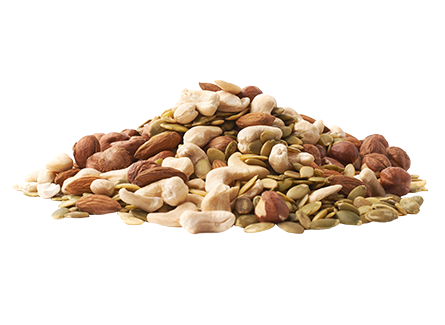What You Need to Know About Dietary Supplements
August 22, 2022Categories: Nutrition, Your Wellness

Our bodies need vitamins and minerals to function: Bone growth, immune system support, heart health and wound healing are just a few of the benefits these nutrients provide. While it’s possible to consume enough by eating and maintaining a balanced, nutrient-rich diet, we often fall short. And that’s when dietary supplements come into play.
According to research, more than two-thirds of U.S. adults take dietary supplements. Many take them to combat a vitamin deficiency (if they follow a vegan diet, for example, that leaves them short on vitamin B, zinc or iron). Others take them simply to be proactive about their health. Such supplements are a growing industry — not to mention big business, with over-the-counter supplements bringing in about $30 billion each year in the United States. So, what do you need to know?
What Are Vitamins and Minerals?
To start, let’s take a closer look at vitamins and minerals themselves.
Vitamins
Vitamins are organic substances that can be classified as either fat soluble or water soluble. Fat-soluble vitamins include vitamins A, D, E and K. These vitamins dissolve in fat and are stored in it, so they tend to hang around in our systems longer than their water-soluble counterparts.
It’s hard for our bodies to run out of fat-soluble vitamins because they can store what they don’t need right away.
Here’s a quick breakdown of common fat-soluble vitamins:
- Vitamin A supports eye health, stimulates the production of white blood cells, and regulates cell growth and division. It’s found in leafy-green vegetables, tomatoes, milk, eggs, red bell peppers, cantaloupe and mangos.
- Vitamin D helps the body absorb and retain calcium and phosphorous, which support bone growth, and helps control infections and reduce inflammation; It’s found in sunlight, fatty fish and fish liver oils.
- Vitamin E acts as an antioxidant combating free radical damage, strengthens the immune system and prevents artery blockages; It’s found in plant-based oils, nuts, seeds, fruits and vegetables.
- Vitamin K creates proteins the body uses for blood clotting and bone growth; It’s found in leafy-green vegetables, soybeans and canola oil.
Water-soluble vitamins include vitamins C and B (B1, B2, B3, B5, B6, B7, B9, B12). These vitamins dissolve in water and aren’t stored well, so our bodies use what they need and get rid of the rest as waste through urine.
Here’s a quick breakdown of common water-soluble vitamins:
- Vitamin C helps control infections and heals wounds and works as an antioxidant; It’s found in fruits such as oranges and strawberries, and vegetables such as tomatoes and broccoli.
- B6 and B12 vitamins help enzymes do their jobs, such as releasing energy from carbohydrates and breaking down amino acids; They are found in chicken, fish, red meat, eggs and leafy-green vegetables.
Minerals
Minerals are inorganic elements that are found in water and soil.
Here’s a quick breakdown of common minerals:
- Calcium strengthens bones and teeth, helps muscles and blood vessels contract, and regulates heart rhythm; It’s found in leafy-green vegetables, beans, nuts, cheese and yogurt.
- Iron helps with cell growth and development and provides oxygen to muscles; It’s found in red meat, chicken, seafood, beans, spinach, and enriched rice and bread.
- Magnesium regulates the body’s muscle and nerve function, blood sugar levels and blood pressure; It’s found in almonds, peanut butter, beans, soybeans, leafy-green vegetables, fish, poultry and beef.
- Phosphorus strengthens bones and helps maintain blood vessel and muscle function; It’s found in milk, yogurt, cheese, seafood, beef, chicken and vegetables.
- Potassium regulates blood pressure and heart rhythm, and helps with cell, nerve and muscle function; It’s found in beans, spinach, bananas, tomatoes, yogurt, oranges and orange juice.
- Sodium helps with nerve and muscle function; It’s found in processed foods such as pizza, sandwiches, cold cuts, tacos and soups.
- Zinc supports the immune system, stimulates wound healing, and helps make proteins and DNA; It’s found in meat, chicken, seafood and whole grains.
Potential Pitfalls of Supplements
Dietary supplements come in many forms, including pills, powders and liquids, but they each contain one or more dietary ingredient, such as a vitamin, mineral or herb. Among Americans who take a supplement, most take a multivitamin.
While dietary supplements can boost your health, they’re not all created equal — and they aren’t always safe. The Food and Drug Administration (FDA) doesn’t regulate (aka review and approve) the production of supplements before they go to market as it does prescription drugs, which means less is known about drug interactions. Supplements also don’t have to undergo clinical trials before hitting the shelves.
The United States Pharmacopeia (USP) — an independent nonprofit focused on building trust in medicines, dietary supplements and foods — inspects products for purity, proper metabolism, safety and appropriate manufacturing practice. Products that go through the USP receive a stamp of approval. But this inspection is optional, and although the FDA can remove a supplement from the market, it will only investigate if it receives a report of a safety concern.
Still, most dietary supplements are beneficial if they’re used appropriately. The timing of when you take a supplement during the day is generally up to you, but you may want to consider:
- Taking fat-soluble vitamins, including multivitamins, after meals because they depend on food for absorption.
- Not taking certain medications, like stomach acid reducers and blood thinners, within two to four hours of supplements.
Always Start with Your Doctor
Talk to your doctor before starting any supplement to determine what will be safe and effective for you and your unique health needs. They can tell you about any potential drug interactions. You should also keep the following in mind:
- Always take a supplement as directed.
- Be wary of dramatic claims like the ability to cure cancer or other disease.
- Keep supplements and medications out of the reach of children.
- Remember that “natural” doesn’t necessarily mean “safe” (ingredients from nature can still be harmful).
Understand that supplements are not a replacement for a healthy, balanced diet.
Watch Alexandra Deboest's event, Supplements: What You need, What You Don't and What May Be Harmful:
Explore More
5 "Must Have" Nutrients
Got Fiber?
How Healthy Are Vegan and Plant-Based Diets?



